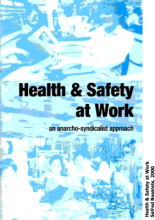Problems at work No.5: 1st steps - Organising at Work What's the point in organising, what rights have we got?
Workers' rights are indeed in a sorry state, but this only underlines the need to organise on the job, in our own workplaces. What rights we do have, mainly in the area of health and safety, aren't properly enforced, so it's clear that the state has little interest in our welfare over and above the level necessary to keep the economy's cogs turning. Many situations at work fall outside the law and so it is down to workers themselves to ‘negotiate'. Often, this is done only in staff meetings where the agenda is controlled by the bosses, or where workers can only voice concerns individually. Clearly this is far from ideal. The employer retains absolute control as no effective threat is posed. Only by organising can workers force their boss to sit up and pay attention.
But how can we organise? There isn't a union in my workplace.
